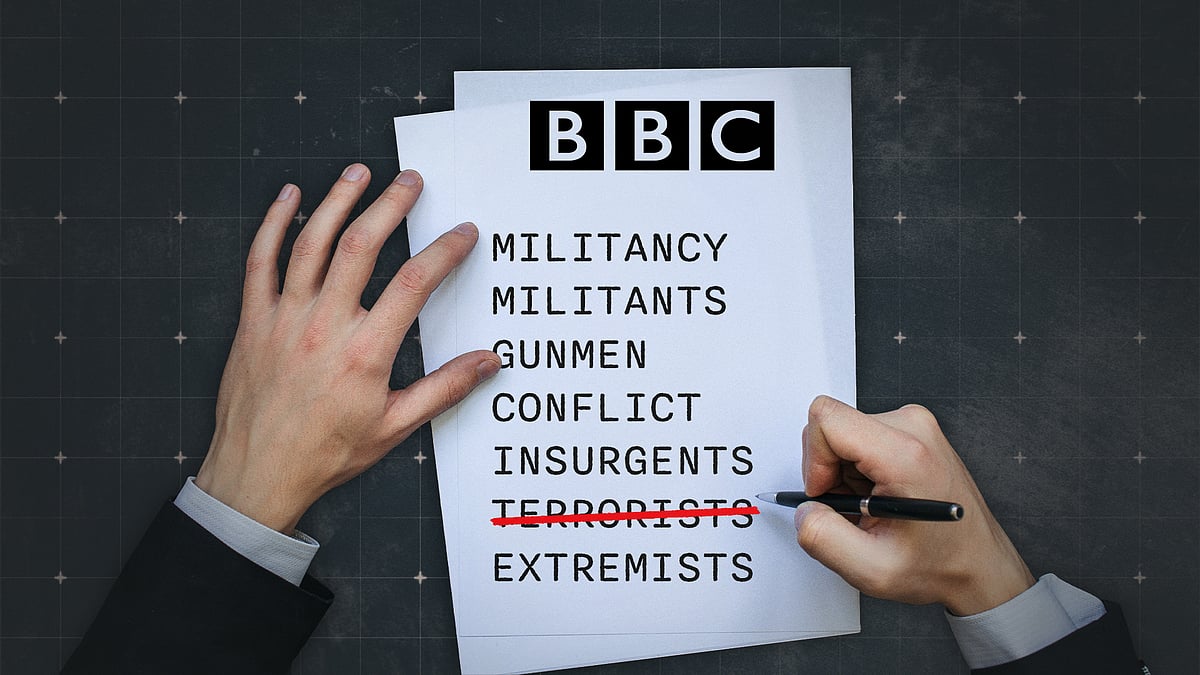‘Opaque editorial decisions, by design’: BBC staff’s open letter on Israel-Palestine coverage
The letter was addressed to BBC director general Tim Davie.
More than a 100 BBC employees have written a letter to the director general, Tim Davie, complaining that the Corporation has become a mouthpiece for Israel. The letter was signed by around 300 other media professionals.
“We’re writing to express our concerns over opaque editorial decisions and censorship at the BBC on the reporting of Israel/Palestine. We believe the refusal to broadcast the documentary ‘Gaza: Medics Under Fire’ is just one in a long line of agenda driven decisions. It demonstrates, once again, that the BBC is not reporting ‘without fear or favour’ when it comes to Israel.”
The letter comes days after a controversy over the BBC’s decision to livestream Glastonbury Festival act Bob Vylan, who chanted “Death to the IDF” during a live broadcast.
The letter notes that the decision not to broadcast the investigation was taken by BBC management despite the content being signed off in accordance with BBC guidelines and editorial policy, which it says “appears to be a political decision”. It states the BBC response suggests the corporation “is crippled by the fear of being perceived as critical of the Israeli government.”
The letter reiterates that the signatories are not “asking the BBC to take a side” but just to allow journalists to “do their jobs”. “As an organisation we have not offered any significant analysis of the UK government's involvement in the war on Palestinians. We have failed to report on weapons sales or their legal implications. These stories have instead been broken by the BBC’s competitors.”
“This hasn’t happened by accident, rather by design. Much of the BBC’s coverage in this area is defined by anti-Palestinian racism.”
“The inconsistent manner in which guidance is applied draws into focus the role of Sir Robbie Gibb, on the BBC board and BBC’s Editorial Standards Committee. We are concerned that an individual with close ties to the Jewish Chronicle, an outlet that has repeatedly published anti-Palestinian and often racist content, has a say in the BBC's editorial decisions in any capacity, including the decision not to broadcast ‘Gaza: Medics Under Fire’.”
One of the signatories of the letter, Owen Jones, notes in a piece that Sir Robbie Gibb is “a striking case study. The brother of a Tory minister, he joined the BBC as a political researcher after he graduated, before becoming chief of staff for Tory Shadow Chancellor Francis Maude. He then returned to the BBC as deputy editor of the flagship current affairs programme Newsnight, then became the editor for BBC political programmes such as Daily Politics, where he worked closely with its main presenter, Andrew Neil, then chairman of the hard right Spectator magazine. He then went off in 2017 to become director of communications for the Tory prime minister Theresa May. He then returned to the BBC, joining its Board.
In 2020, he led a consortium bid to buy The Jewish Chronicle, a newspaper which has acted as a zealous cheerleader of the Israeli state.
The letter notes that “this conflict of interest highlights a double standard for BBC content makers who have themselves experienced censorship in the name of ‘impartiality’. In some instances staff have been accused of having an agenda because they have posted news articles critical of the Israeli government on their social media. By comparison, Gibb remains in an influential post with little transparency regarding his decisions despite his ideological leanings being well known. We can no longer ask license fee payers to overlook Gibbs’ ideological allegiances.”
“For more than a year now we’ve been aware that the BBC’s news output is out of step with reality. Audiences are being asked not to believe their own eyes and ears. Anyone with a phone has seen the footage coming out of Gaza and the West Bank yet BBC News has tied itself in knots with notions of ‘complexity’. Why have we taken a clear position on Ukraine and Russia when we fail to confidently assert facts when it comes to the Palestinian people? Robbie Gibb is at least part of the answer. We raised these concerns so many times and we have not been listened to. We are speaking out because we must serve audiences better.”
Jones points to another example “of the biggest scandal of Western journalism of our time”.
“What the BBC and other organisations did is either completely erase the statements of genocidal and criminal intent made by Israeli leaders and officials, or bury them, and indeed refuse to explain the genocidal and criminal nature of those statements. These statements proved the most accurate roadmap for what Israel would go on to do, and yet the BBC completely misled their audiences about Israel’s intent, treating these statements as though they were being issued in a parallel universe, and instead zoning in on deceitful statements issued by Israeli officials designed for Western audiences.”
“The BBC repeatedly framed their stories around the false statements and claims of the Israeli state, treating them as credible despite the overwhelming evidence of Israel lying over and over again and indeed committing every single war crime and crime against humanity under the sun. Palestinian voices received much less coverage and were prosecuted as though they were in the dock in a way pro-Israel voices are not.”
Complaining about the media is easy. Why not do something to make it better? Support independent media and subscribe to Newslaundry today.
 BBC’s terror policy: Fair reporting or double standard?
BBC’s terror policy: Fair reporting or double standard?